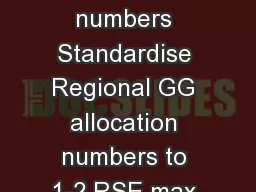
Author : lindy-dunigan | Published Date : 2025-05-23
Description: Writing Lab How to Use Numbers in Writing What is a Number? A number is a mathematical idea used to count, label, and measure. Numbers can be represented by numerals or words. Numerals or figures 12 5 3 π 25 XLI 101 1,492 MCM 500,000 WhatDownload Presentation The PPT/PDF document "" is the property of its rightful owner. Permission is granted to download and print the materials on this website for personal, non-commercial use only, and to display it on your personal computer provided you do not modify the materials and that you retain all copyright notices contained in the materials. By downloading content from our website, you accept the terms of this agreement.
Here is the link to download the presentation.
"Writing Lab How to Use Numbers in Writing What is"The content belongs to its owner. You may download and print it for personal use, without modification, and keep all copyright notices. By downloading, you agree to these terms.













